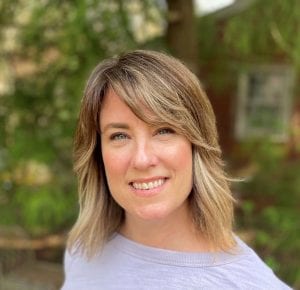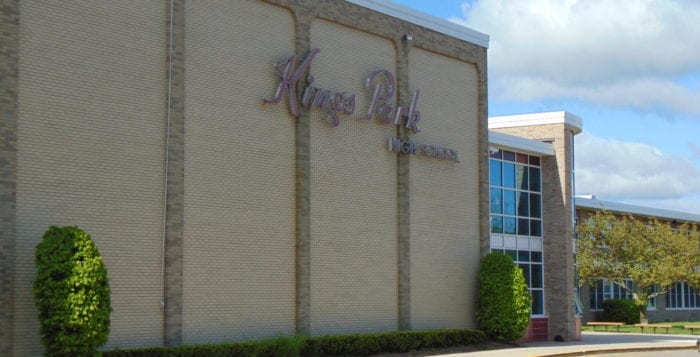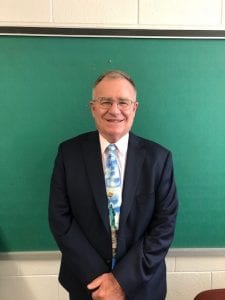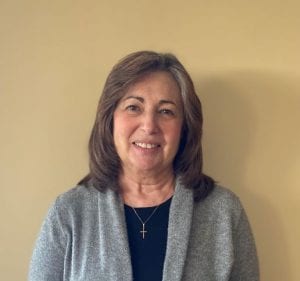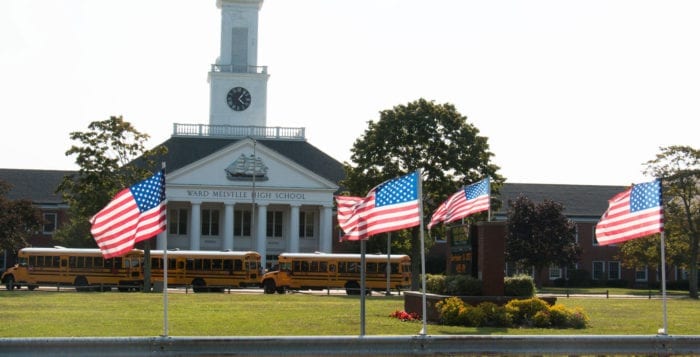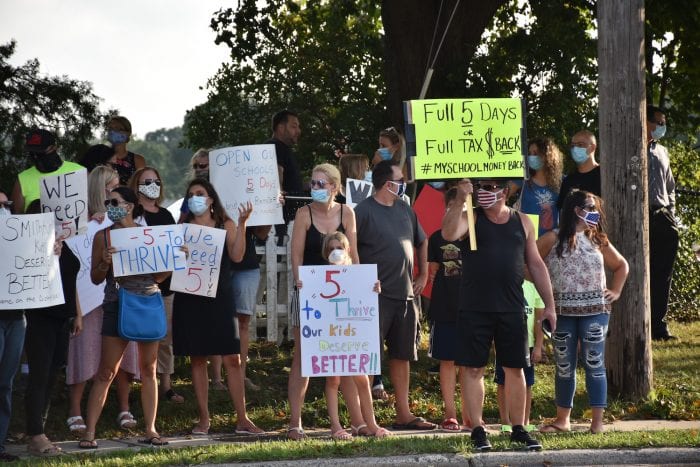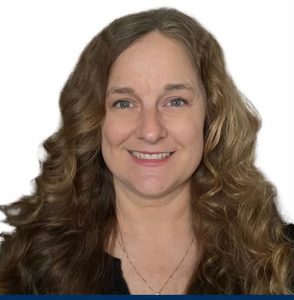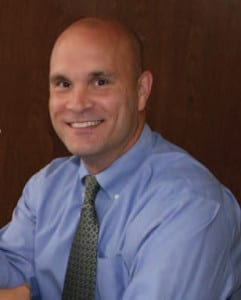Four candidates will vie for two seats in the Three Village Central School District Board of Education race, May 17.
District residents will also vote on a nearly $225 million budget for the 2022-23 academic year. The new budget is $3,798,183 more than last year’s contingency budget of $220,262,435, reflecting a 1.72% increase. The proposed tax levy is $164,954,877.
This year if the proposed budget is defeated, a contingency budget would be adopted and would be reduced by $2.95 million, creating a 0% tax levy. There will be no other propositions on the ballot.
Last year, although 57.7% of taxpayers voted in favor of a $222.6 million budget — 2,286-1,677 — it failed to pass. The proposed budget pierced the 1.37% cap on the tax levy increase, necessitating a supermajority approval, or 60% of the vote.
The district is poised to receive almost $49 million in state aid, a nearly 4% increase of $1.86 million.
Among cutbacks, the district projects that there will be a decrease of 8.6 full-time equivalent positions on the secondary level due to declining enrollment and class consolidation. Among the staffing reductions are the elimination of 4.5 FTE nurses in the wake of declining COVID-19 infection rates.
Candidate information
Four candidates will be vying for two at-large seats May 17. The Village Times Herald conducted phone interviews with incumbent Vinny Vizzo and newcomers Jennifer Solomon, Reanna Fulton and Evan Proios.
Town of Brookhaven Councilmember Jonathan Kornreich (D-Stony Brook) will not be running for reelection after serving on the board since 2008.
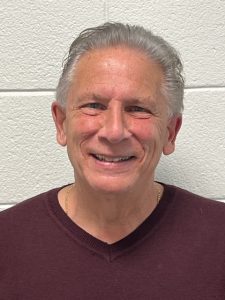 Vinny Vizzo
Vinny Vizzo
Vizzo, a 34-year veteran of the school district, is running for the second time. Vizzo has been both a teacher and administrator in Three Village and a few years ago retired as principal of R.C. Murphy Jr. High School. As someone who has worked, lived in the district and also raised children in Three Village, he said he decided to run again because the community is “his life.”
With changes in the district, including the retirement of superintendent of schools, Cheryl Pedisich, Vizzo said it was important to run again.
“There are a lot of different things that are going to be put on the table, and I want to make sure, if I’m elected, that I’m going to keep what we need to keep and keep a good eye open for the kids in the community,” he said.
Vizzo called the Three Village school district programs “phenomenal” for all students.
“We offer an array of programs for our kids so they can take so many different courses, that they can flourish in many ways,” he said.
He would like to see a foreign language program in the elementary schools, something that he said is done in many districts. He would also like to see a home-based BOCES program.
Since he began his term in 2019, Vizzo has dealt with COVID-19 mandates and the requirement of the HPV vaccine to attend schools before the pandemic hit. He said he feels the board members usually are on the same page despite the challenges and criticism from some parents over the district following state COVID-19 mandates so as not to lose state aid.
He also feels that the board has done well in settling contracts and said they are mindful of saving residents money.
He applauds the new budget advisory committee which includes community members and would like to see it broadened in the future with administrators and teachers. He would also like to see more forums for residents where there can be an exchange instead of people submitting questions before a meeting and not being able to ask questions that they may think of after.
“They want to go back and forth,” he said. “I get it. They want to question the board and they want answers. They don’t want us to sit there mute.”
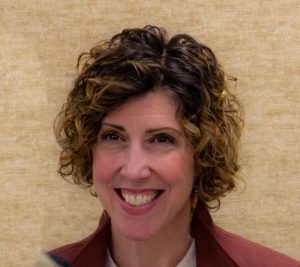 Jennifer Solomon
Jennifer Solomon
Solomon and Vizzo, her former Spanish teacher when in junior high school, are running mates. A graduate of Three Village schools, she is raising four children in the district and is running for the board for the first time. She has worked as a bilingual speech language pathologist in the Riverhead Central School District and is now an administrator in the Riverhead district.
“I am running because I’m a very strong believer in public education,” Solomon said. “I want to make sure that every student has the opportunity to learn and grow and be prepared for life and to make the world a better place.”
She added sharing a range of perspectives and ideas can help children become more empathetic.
Solomon said she feels that her background as an administrator would be helpful on the board. Working in a district that has a high population of Spanish speakers and her experience as a speech pathologist helps her evaluate students to differentiate between learning disabilities and just needing to learn the English language and provide them with the proper programs they need.
“I’m very committed to making sure that every child has opportunities,” she said.
Solomon said she feels the district and community has done a solid job in supporting student’s mental health, but as a society there is a crisis for adolescents with them being addicted to screens and social media — and feeling isolated. Something that was exacerbated by the pandemic. She feels it’s important to prepare students by supporting their mental health needs before they can work on a rigorous challenging academic career.
She said she feels the community also shares a similar vision to her and described the district as “strong and wonderful.”
“I think that as a community, we, for the most part, share a common vision that we want our school district to continue as a stellar district, but I think that there are differences of opinion in terms of how we got there,” she said.
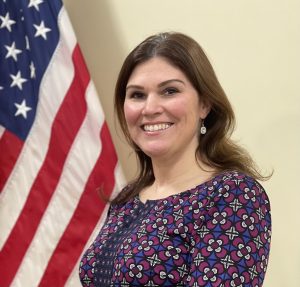 Reanna Fulton
Reanna Fulton
Fulton is a familiar face in the Three Village community as post commander for the Veterans of Foreign War Post 3054 in Setauket. She is also junior vice commander of the Suffolk County VFW and soon-to-be senior vice commander. She served in the U.S. Navy and was on active duty during the 9/11 era.
Currently, she’s a supervisor of technology for a local school district, and she recently completed a doctoral program in leadership and organizational change.
With two children in the district, this is her first time running for board of ed, and she said she believes her various career and community experiences would be an asset.
“I just wanted to be helpful to the community with my experiences in schools as a teacher and administrator,” she said. “I thought maybe I could offer a perspective and really help to bridge the gap of what’s going on between the community and the district, and some of the differences of opinions and just the lack of conversation.”
She said she feels one of the issues is communication transparency.
“I think that people really need to understand and be able to share what they feel and get a response,” she said. “Sometimes communication is very one sided. So, people don’t trust when there’s no open dialogue.”
She said trust between the community and district has broken down a bit. She added budgets also need to be looked at closer and shouldn’t be “rubber stamped” too quickly.
“We want to be able to have that relationship where people will pass budgets because they trust that the district — and the board — has really overseen the process,” she said. “To say, this is what we’re purchasing, this is how we’re spending our money. And it’s OK, you can trust us that we’re doing what’s in your best interest. But it seems that trust between the community and the district especially is just broken down.”
She added that she would like to see the elementary STEM program be brought back to the district. Fulton said the earlier students start, the more likely they will pursue STEM-related careers.
Fulton’s running mate is Evan Proios.
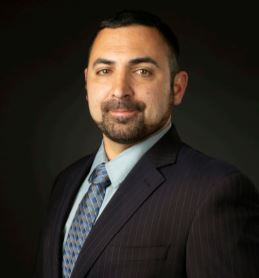 Evan Proios
Evan Proios
Proios has lived in the district for seven years and has a daughter in the district.
A professor and an IT administrator for Suffolk County Community College, he decided to run because he moved to the district due to its great reputation. He said he believes the district could even be better, especially when it comes to communication.
“I do think the connection between the district and the community is lacking,” he said, adding that many parents feel they aren’t heard regarding contentious issues.
“I think everyone wants what’s best for their kids, but I think we do a poor job of communicating everything,” he said. “I don’t think the community feels as involved as they should. I don’t think the parents feel as involved as they should.”
He said as someone who has been in academia for his entire career, sometimes tracking down district information is even difficult for him.
Proios said he understands that the district needed to follow state mandates during the COVID-19 pandemic because it would lose state aid if it didn’t, but he felt that wasn’t communicated to families correctly and therefore caused confusion. However, he was pleased that Three Village was able to return to in-person learning sooner than other districts.
“I really have to commend Three Village for staying open through this,” he said.
The candidate said he also feels when a large number of parents want to attend a board of ed meeting, it should be held in a larger space such as an auditorium instead of the board room. While it has been stated that it’s difficult due to technology issues, he said based on his experience at SCCC he believes a way can be found to accommodate everyone and any technology needed can be provided.
Proios said he believes in curriculum transparency but is not associated with the national movement. Regarding curriculum transparency, he said to him it “means I want to know everything my kid is learning,” adding that parents should be able to question teachers and be happy with the answers.
“Are we making sure that the parents are comfortable with what their kids are learning? I’m not saying burning books,” he added.
Voting information
Voters will be able to cast their ballots Tuesday, May 17, between 6 a.m. and 9 p.m. at Ward Melville High School.

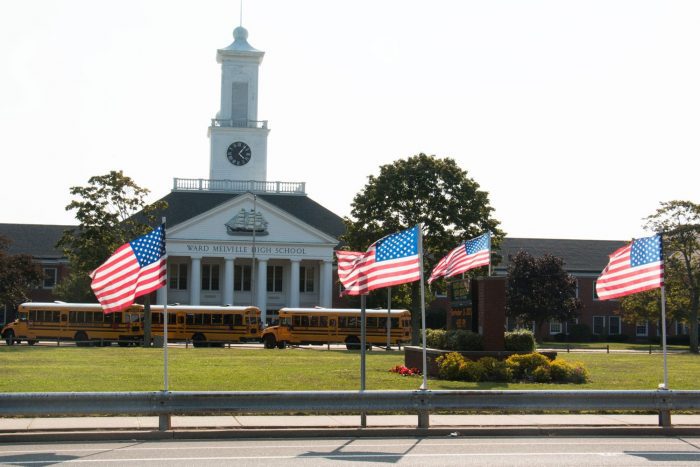
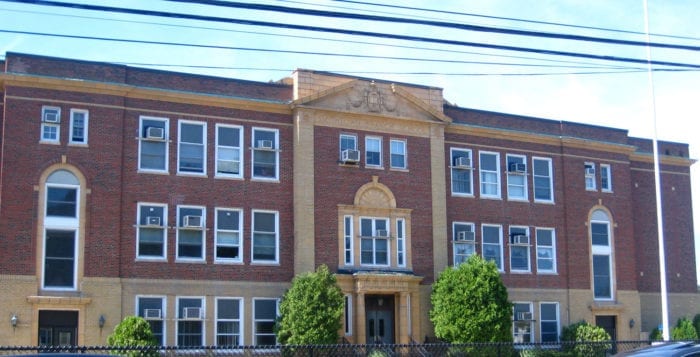
 Michael Saidens
Michael Saidens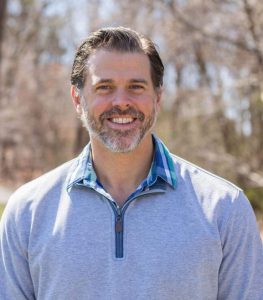 Michael Catalanotto
Michael Catalanotto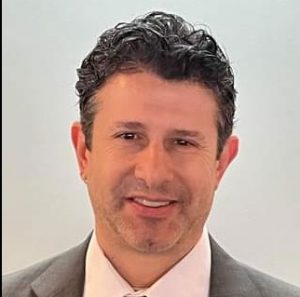 Charles Fisher
Charles Fisher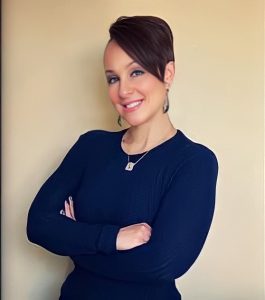 Angela Kouvel
Angela Kouvel

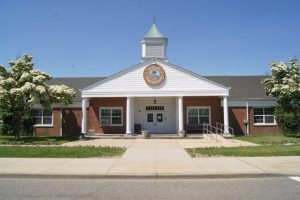
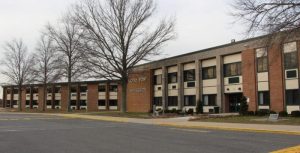
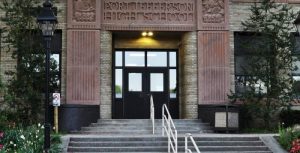
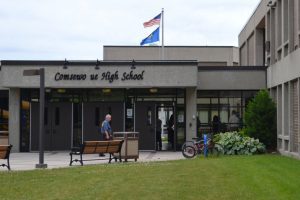

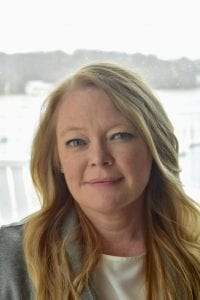



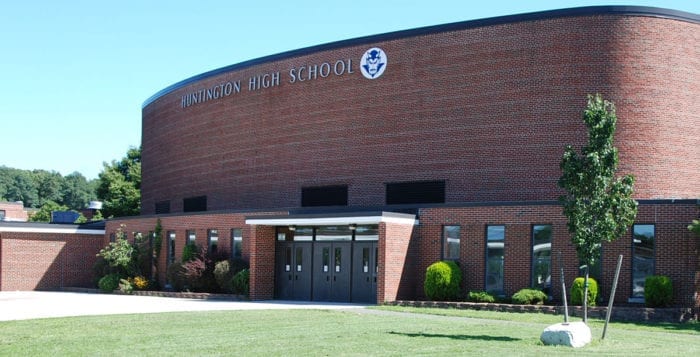
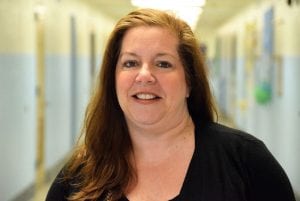 Christine Biernacki
Christine Biernacki

